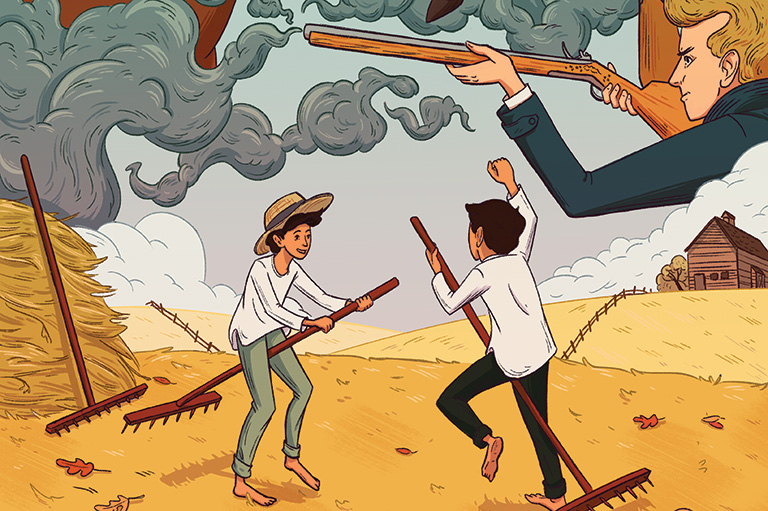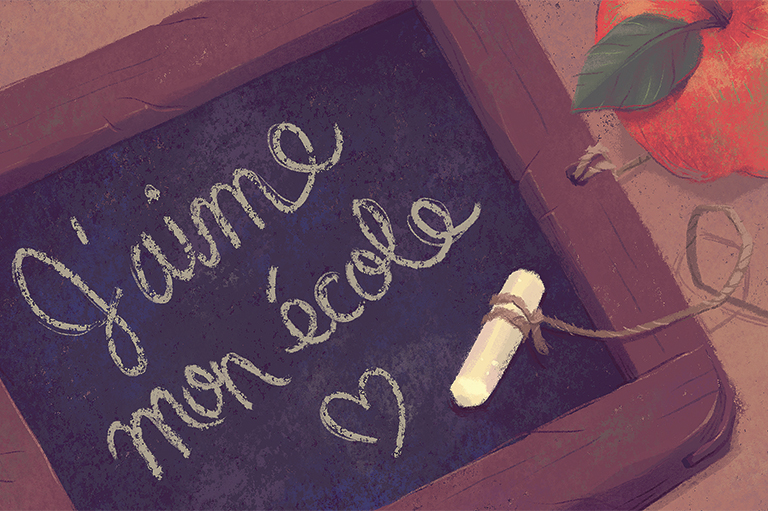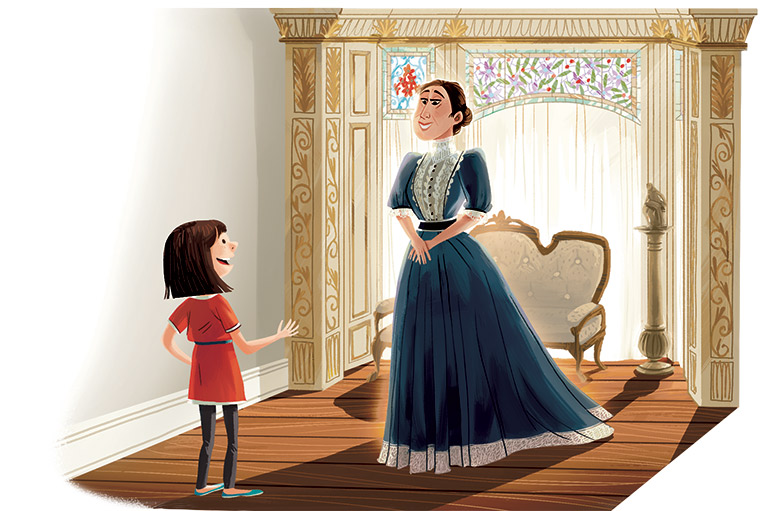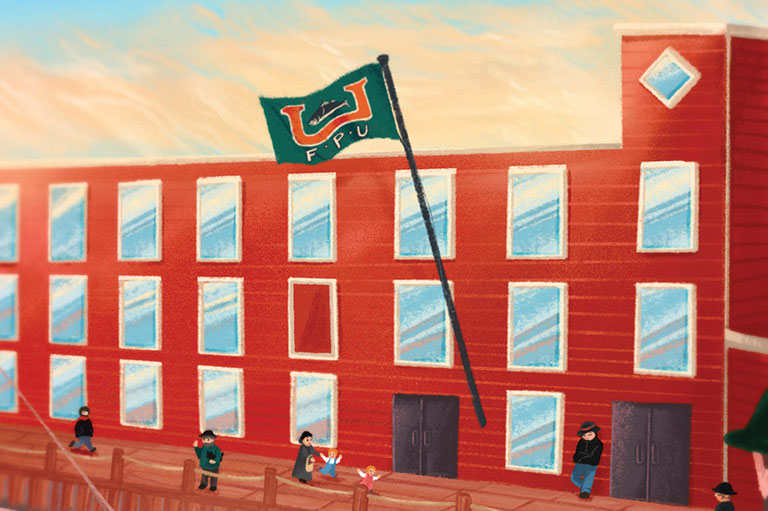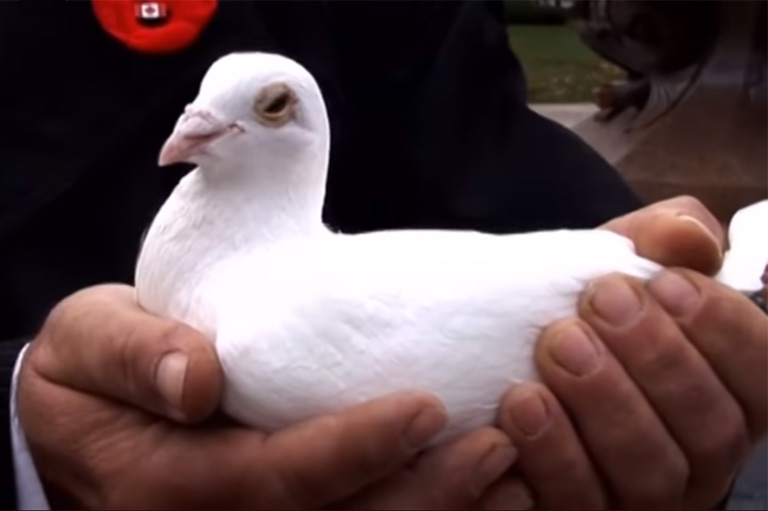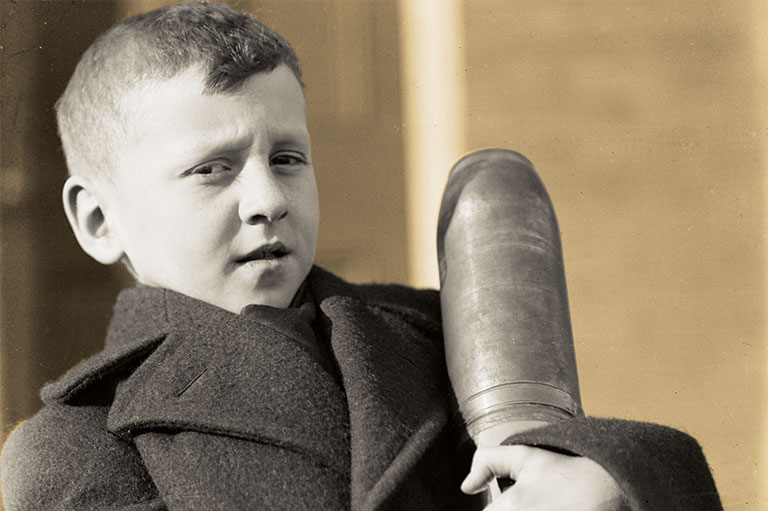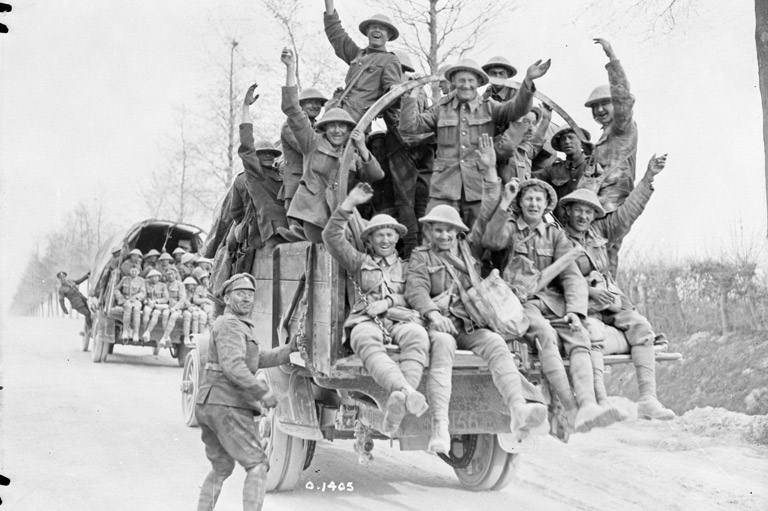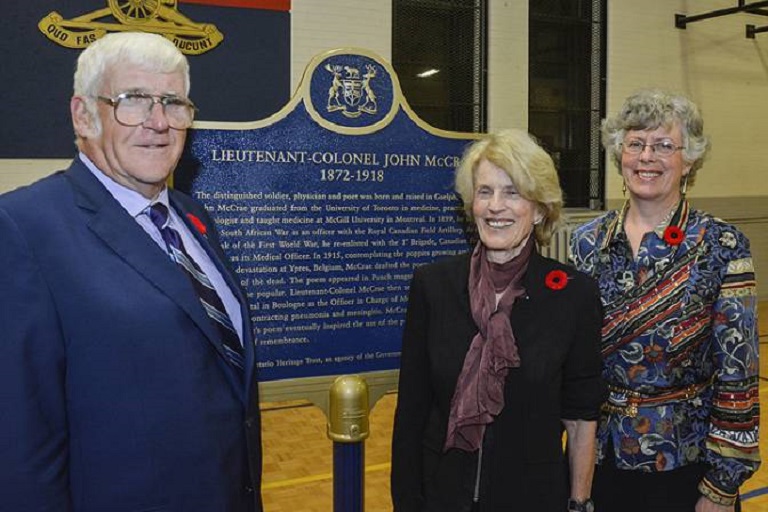Attack on Bell Island
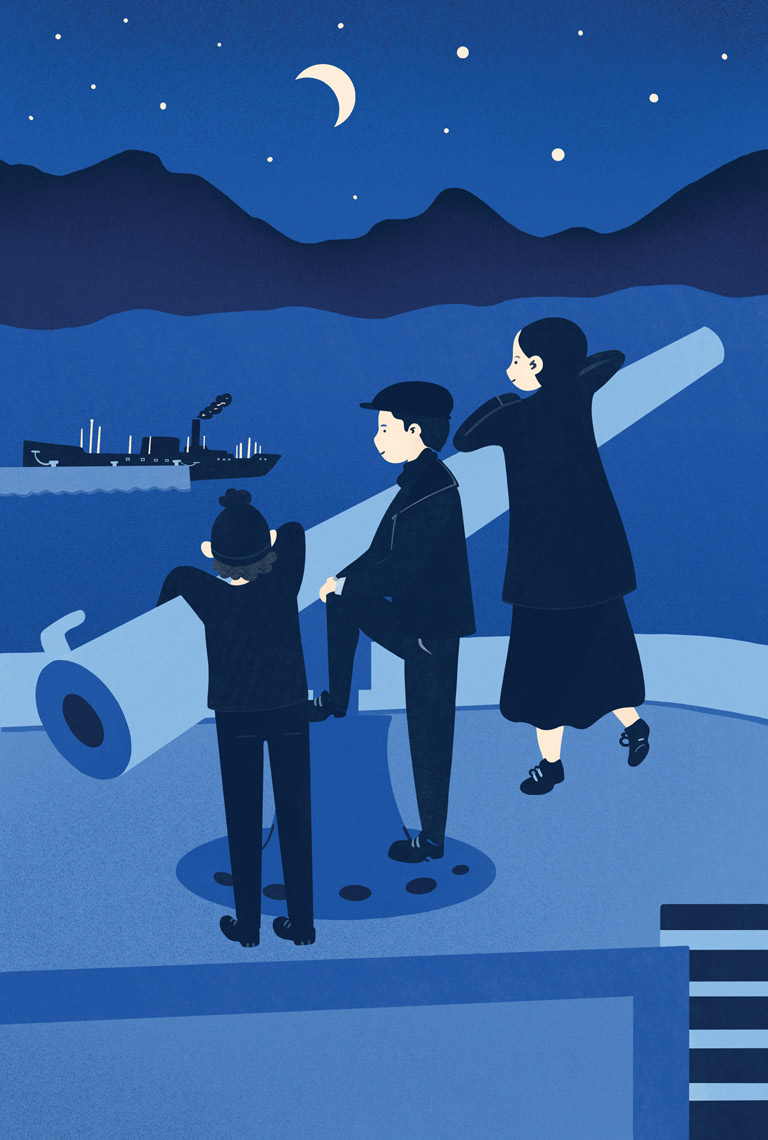
November 2, 1942, Bell Island, Newfoundland
“You know mum’s going to kill us, right?” Greg called to his sister.
No reply — she was too far ahead of him on the narrow cliff-top. He turned to his twin brother, Harry. “If we start back now, we can be in bed before she knows we’re gone.”
“And let Lilian call us cowards forever?” Harry replied. “Not a chance.”
Greg sighed and walked a little faster. Why did he and Harry always let their big sister talk them into these things? It had sounded exciting when she suggested it — sneaking out after bedtime to the guns keeping watch over the harbour — but now that they were out, it was just dark and damp and chilly.
Besides, everything looked different at night. They’d seen the familiar low concrete platforms with the guns on top dozens of times in the daylight, but now it all seemed downright eerie.
“Shhh!” Lilian whispered fiercely, looming up out of the darkness. “Do you want the Canadians to shoot you?” Seeing her brothers’ worried faces, she grinned. “You’re a pair of ninnies. Are you ready to play spies or what?”
The boys shrugged uneasily. Their sister was fun to play with, even if her games often got everyone into trouble. “We’re here now, aren’t we?” Harry whispered.
“I’ll be the Newfoundland militia, and you be the Canadians,” Greg whispered back. He held a piece of pipe up to his eye. “I’ll keep a lookout for the enemy.”
“If you think I’m going to be the Germans, you can think again,” Lilian growled. “Tell you what — let’s pretend we’re in France, being spies behind enemy lines.”
But Greg wasn’t listening. He wasn’t even whispering. In fact, he was jumping and pointing and yelling. “Something’s moving down there! I think it’s a U-boat!”
Harry looked back and forth between the others. “Are you starting the game or what? Because I want to be a spy, too!”
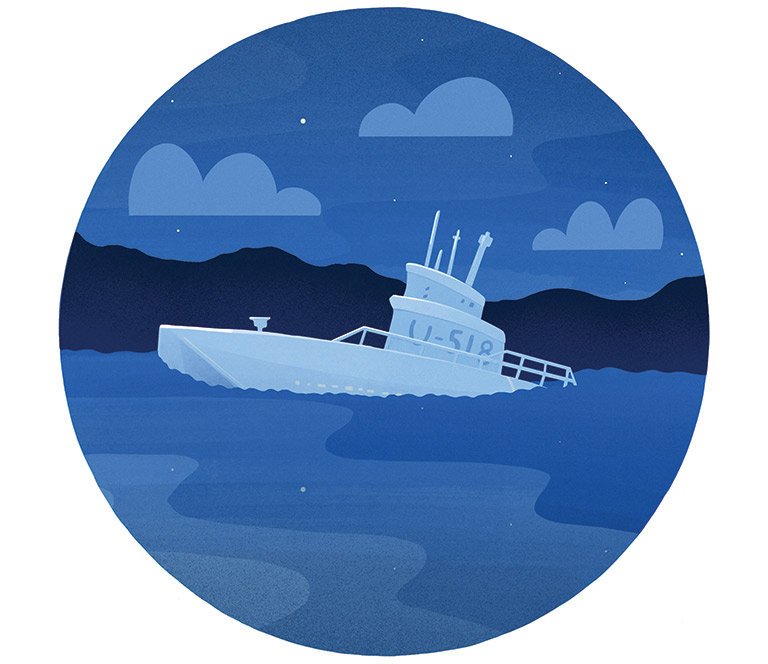
Just then it seemed like the whole island shook. A giant boom knocked them to the ground. “Are you okay?” asked Lilian in a shaky voice.
The twins just nodded, their eyes wide. What had happened? Did it have something to do with the rippling water Greg had spotted? Was the harbour full of enemy submarines? Were their friends and neighbours hurt?
Without saying another word, the three of them scrambled down the hill for home. When they got to the blue house with the white trim, they saw their mother running toward them. They braced for her anger but instead she swept them up in one big hug.
“Oh, my darlings! I thought for sure something had happened to you!” She was almost sobbing, joy and relief mixed in her voice.
“Where’s Dad?” Harry asked. “And what happened to the windows?” Every pane of glass in their neat home had been shattered by the blast.
“Your father went down to help the wounded,” their mother said.
“The Germans sank two ships in the harbour. The Rose Castle and that French ship, I mean, they’re just …” Her voice trailed off. “I keep thinking of all the men on board and their families …” She hugged the children tighter.
“I bet the Germans fired torpedoes at Bell Island because they know how tough Newfoundlanders are!” Lilian declared. “They know our iron ore will build the ships that are going to beat them someday soon!”
Her mother gave a half-smile.
“Word is that they just plainly missed with one of their shots. And don’t you worry — you’re safe. Our family is all safe. Let’s be grateful for that.”
She turned her attention back to the three kids. “Now you get back to the house. You can sweep up while I make some tea and biscuits for the rescue workers. It’s going to be a long night.”
Harry, Greg and Lilian silently found a broom and dustpan and started to clean up. The war had come to Bell Island, but suddenly it was no longer exciting.
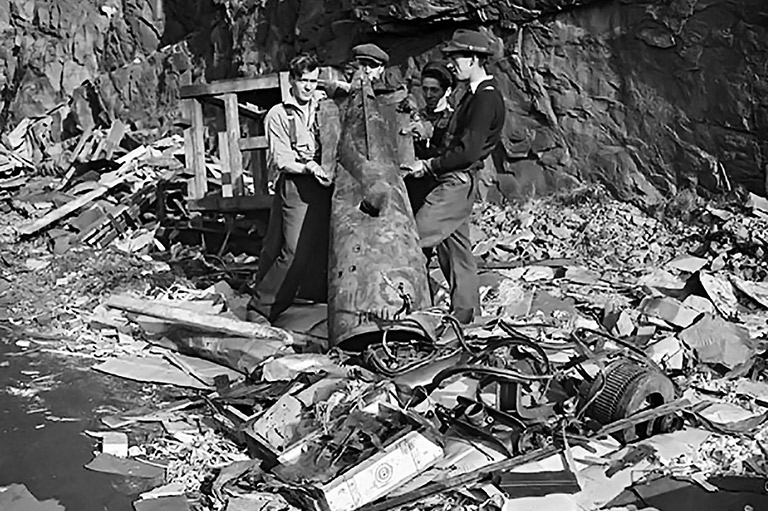
The island of Newfoundland was smack in the route of ships travelling between North America and Britain during the Second World War.
Known as the Merchant Navy, these ships carried crucial supplies for the war effort — everything from weapons to food.
Newfoundland and Labrador was a British colony, not yet part of Canada, but it contributed a lot to the war effort. Ships came to Bell Island in Conception Bay to load up on iron ore, and the island of Newfoundland was home to Allied air force and navy bases in places like Argentia, Torbay, Stephenville, St. John’s, Gander and Goose Bay.
German U-boats struck just off the coast of eastern Canada and Newfoundland, sinking dozens of ships over the war, including the SS Caribou, a passenger ferry running from Sydney, N.S., to Port-aux-Basques, NL, on the night of October 13, 1942. One hundred and thirty-six people died.
In September 1942, the Germans sank two ships in the Bell Island Harbour, the SS Lord Strathcona and the SS Saganaga.
The U-boats came back again in November, sinking the Rose Castle and a ship operated by Free French forces who had not submitted to the rule of the Nazis. One torpedo missed its target and hit the harbour pier, causing a huge explosion that shattered windows on the island.
Today you can learn more about the attacks and the area’s mining history by visiting the museum on Bell Island.
Themes associated with this article
Advertisement
More fiction features
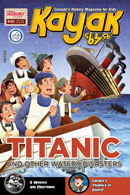
Canada’s History Archive features both English and French versions of Kayak: Canada’s History Magazine for Kids.
Kayak: Canada’s History Magazine for Kids — 3 digital issues per year for as low as $13.99. Tariff-exempt!


